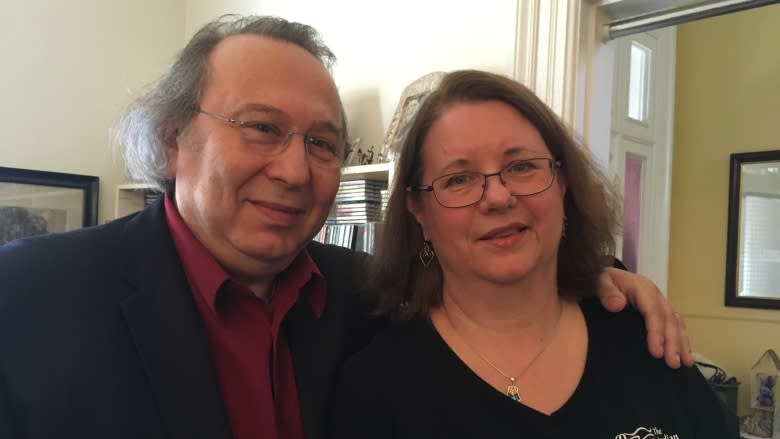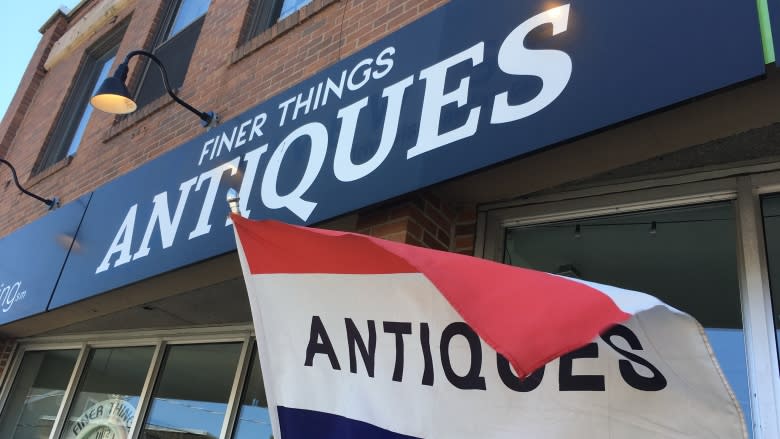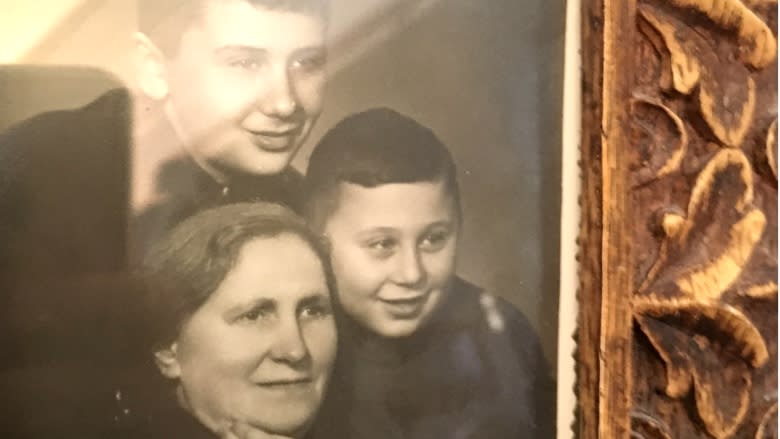Nazi symbols for sale at antique store sparks debate over racist relics
A Jewish couple in Halifax say they won't be returning to a local antique store after discovering it sells Nazi memorabilia.
Peggy Walt was browsing Finer Things Antiques on Saturday when she noticed a glass case with badges and medals marked with swastikas.
"When you walk into an antique store you don't expect to see something that is going to raise those kinds of feelings," Walt said. "Profiting from this, it's really not the right thing to do."
Walt had just come from a nearby synagogue. And she said she confronted the salesperson about why they were selling the items in the Quinpool Road store.
"They said, 'Well you know, it's history,' and I said, 'Not if you lost people in the Holocaust. It's more than that — and it's very upsetting,' and I just left."
Walt's husband, Shimon Walt, had family members who died in concentration camps. It's a painful part of the family's story that, until recently, his parents rarely spoke of.
"When I think of those little insignias, I think [of how] people who committed all those atrocities were wearing them," Shimon Walt said. "That's probably what my family saw [as] the last thing before they died. So having it on display is hurtful."
The Walts want the racist relics stored where customers cannot see them or placed in a museum. But the store's owner said it's not his job to decide what parts of history can and cannot be displayed.
On Sunday, Walt posted about her experience on Facebook. Within hours, Jack Craft had responded.
"Those items are reminders of a very difficult time in our world history," wrote Craft, who has run Finer Things Antiques for nearly 15 years. "And yes, history is complicated, and sometimes it's offensive and uncomfortable. I do not feel history should be censored."
In an interview with CBC News, Craft said he "completely understood" the Walts' concerns, but he also doesn't plan to get rid of the display.
He said he's careful about how the items are presented. They're at the back of the store, he said, and are surrounded by other military memorabilia from Britain, the United States and Canada.
"It doesn't make sense for us to neglect that aspect of history," Craft said. "If we remove these items from the store, then where do we draw that line as far as what else someone might have a problem with or find uncomfortable or offensive?"
Walt says she worries neo-Nazis might buy the items.
But Craft said people collect Second World War souvenirs for many different reasons.
"My wish is that people would try to consider all views and understand what people's motivations may be for collecting certain things," he said."If you collect something it does not mean that you espouse to the views of whatever political organization or religious organization."
Craft pointed to the often divisive debate that surrounded the removal of the Edward Cornwallis statue. He said conversations like those are necessary as long as both sides are willing to listen.
Walt, meanwhile, said she believed the removal of the replica of Halifax's controversial founder was proof of the need to consider how symbols from the past still have the power to harm.
"Sometimes we need someone from another perspective to point things out to us that aren't obvious because it's not our history," she said.
The Walts say they understand Craft's response, but noted it doesn't make seeing the Nazi symbols for sale less hurtful.
"I think the store owner should take some time and think about it and do whatever he … thinks is right," Shimon Walt said. "Something he can sleep with and something he can walk to the store and feel good about it and we all have to live with it."




